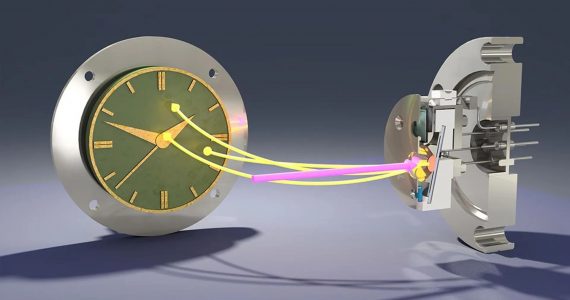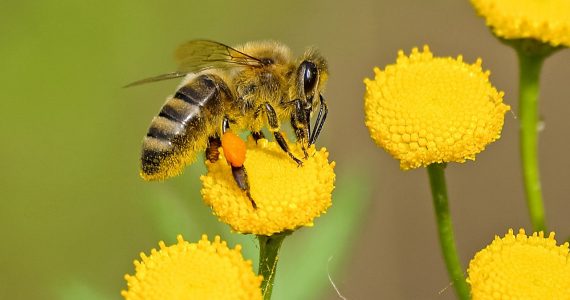 The last century saw some major achievements in food science and technology. And these led to a major leap in the improvement and quality of foods.
The last century saw some major achievements in food science and technology. And these led to a major leap in the improvement and quality of foods.
Since the days of the caveman, human beings have always been experimenting with food and looking for ways to improve it. It is that desire of man to have wonderful food that has led to numerous innovations. And over the years many such innovations have made both cooking and eating a treat! Among the many inventions and innovations, some have become an important part of our lives and it’s almost impossible to imagine life without them.
Refrigeration
 Ice as a preservative of food has been existent for several centuries now. However, the creation of ice and food storage in a box below room temperature is a relatively new invention. It was only in the middle of the 18th century that man invented machine-based refrigeration.
Ice as a preservative of food has been existent for several centuries now. However, the creation of ice and food storage in a box below room temperature is a relatively new invention. It was only in the middle of the 18th century that man invented machine-based refrigeration.
However, it was only in the 20th century that refrigerators became commonplace. The long history of refrigeration has helped humans to store food and preserve the nutrients. It has also brought about the introduction of novel drinks. And now it is impossible to find a home without a stylish refrigerator!
Pasteurization
Pasteurization is a discovery by Lois Pasteur, a French microbiologist. This method’s first use dates back to 1862, where the scientist embraced a heating process to eliminate the microorganisms in milk. It is one of the most recent innovations that has successfully prevented bacterial contamination in food, especially milk. Need we say how popular it is as a practice even to this day?
Canning
 Canning is the process that dates back to the 19th century. It prevents food spoilage by storing foods in hermetically in containers and sterilized by heat. Nicolas Appert of France in 1809 discovered canning after conducting long-time research catering to the instructions by the government to think of a preservative method to help serve the army and the Navy. Canning can increase the shelf life of food from 1 to 5 years.
Canning is the process that dates back to the 19th century. It prevents food spoilage by storing foods in hermetically in containers and sterilized by heat. Nicolas Appert of France in 1809 discovered canning after conducting long-time research catering to the instructions by the government to think of a preservative method to help serve the army and the Navy. Canning can increase the shelf life of food from 1 to 5 years.
The Oven and The Microwave
Have you ever wondered how were baked before? Well, it was discovered sometime during the 29,000 BC. The modern version of the prehistoric oven, gas ovens, was first discovered in the 19th century and was largely used to bake buns. James Sharp was the first inventor to patent a gas oven in 1826. The discovery of gas ovens date back to the 1920s and had top burners and interior ovens.
The recent development of the traditional oven is the microwave oven. It is also an indispensable part of modern cooking. Cooking has never been so easy. The concept of heating refrigerated foods and lending the texture and feel of fresh foods is all thanks to the microwave. It is a dielectric heating process that can help heat the food by using the radiation process and heat the polarized food molecules. It is a notable innovation that has successfully take the food innovation science to the next level.
Irrigation
Irrigation has been one of the most successful ways of cultivating crops. It involves the artificial application of water to irrigate or apply water. It is also useful in growing crops and helps in the revegetation of soils in arid grounds. This is particularly helpful in providing irrigation to places where there is no rainfall or little rainfall.
The first major irrigation procedure took place in Egypt’s First Dynasty under the leadership of King Menes. He and his successors used various technologies such as dams and canals to divert the Nile floodwaters and direct it into a new lake known as the lake “Moeris.”
Baking
 This method of cooking uses high heat for longer periods to prepare food. It uses convection way of heating, rather than thermal radiation. You can perform it using numerous appliances like ovens, hot stones, and hot ashes. Bread baking as a process dates back to 600 BC with its origin in Ancient Greece. We could say call that the foundation for the modern baking mechanism.
This method of cooking uses high heat for longer periods to prepare food. It uses convection way of heating, rather than thermal radiation. You can perform it using numerous appliances like ovens, hot stones, and hot ashes. Bread baking as a process dates back to 600 BC with its origin in Ancient Greece. We could say call that the foundation for the modern baking mechanism.
We take several of our daily essentials for granted. But it is important to find out and understand how these technologies were discovered, and how it impacts modern life. Science is inextricably linked to different aspects of our lives and it has the power to fill us up with wonderment with each new, discovery, and innovation.




